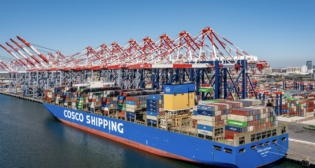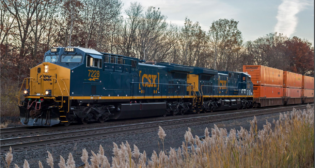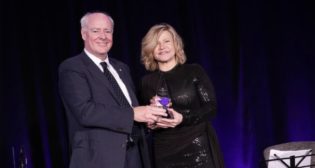
REC Kicks Off “Pathway to Electrification” Workshops
Written by James Hoecker, Husch Blackwell LLP
Shutterstock
The Rail Electrification Council (a non-profit affiliate of the National Electrical Manufacturers Association) recently held the first in a series of workshops designed to engage stakeholders in a frank exploration of the most feasible paths to the future electrification of the passenger and freight railroads.
Convened in Arlington, Va. on Nov. 15, the Workshop and Meeting highlighted developments in the railroad and electric power industries. Unlike industrial processes and other forms of transportation that appear firmly on a path to abandon fossil fuels for less problematic forms of propulsion, railroads—freight rail in particular—face formidable cost and other obstacles to decarbonization and more extensive use of electricity for propulsion and related operations.
Among the uncertainties facing railroads contemplating changes are the transformative changes occurring in the power business, which is itself adapting its operations and business models to incorporate more distributed energy resources, more regional and even national power markets, more renewable energy, and preparation for much greater demands on the power system.
The REC workshop is a recognition that coordination, creativity, and cross-sector thinking is essential to answering some fundamental questions. Among them, how will legacy railroads adapt to new investor demands for environmental, social, and governance innovation, preserve scale economies and service reliability, adapt to changing supply chains, and thrive in a more dynamic economy?
Among the propulsion technologies likely to be available to railroads finding dependence on diesel generation problematic, the most powerful options will be expected to contribute to climate solutions, meet the need for interoperability, maintain economic efficiency and manage operating costs. It’s not yet clear which options or combinations fit the bill.
To complicate things further, electric power companies—both public and private—that produce or deliver electricity have already struggled for a generation to adapt to new (usually cleaner and decentralized) technologies and now confront the need to develop massive new infrastructure capable of tapping diverse new energy resources reliably and efficiently while standing up to the potential for increasingly high demand and extreme weather. Fortunately, railroad rights-of-way may be a critical pathway on which to build a more integrated, efficient and responsive American power grid.
The workshop began with “core” stakeholder presentations from Class I and short line freight railroads, locomotive manufacturers, Amtrak, union participants and a major electric utility trade group. The discussion then spread to all attendees and views on “how technology developers, railroads, utility companies, investors, and policy makers can make the wisest energy and operational efficiency decisions, so that North American railroads can contributed to lowering the emissions and resource requirements of freight and passenger movement.”
The REC concludes that, despite the progress made, there is a great deal still to be done to define the elements of sustainability in this context, identify the primary challenges facing rail electrification, and rank the questions (and answers) about operations, disruptive technologies and stakeholder interests that must be addressed effectively in the future to enable the railroad of the future.
The REC will take up these matters in 2024, with the participation of wiling stakeholders, beginning with another workshop in the first quarter. Railroads and other stakeholders wishing to register their concerns and proposals or monitor developments in these sessions can participate fully. They are urged to contact REC leadership, Jim Hoecker ([email protected]) or Steve Griffith ([email protected]). A “not-for-attribution” summary of the Nov. 15 workshop discussion, as well as the panel discussions on electric transmission development, is available from the REC.
Jim Hoecker, J.D., Ph.D, is Counsel to the Rail Electrification Council and former Chairman, Federal Energy Regulatory Commission.
Further Information: The Electric System Today: Basics for Railroaders
For additional insight, listen to the two-part Rail Group On Air podcast with the Rail Electrification Council:



